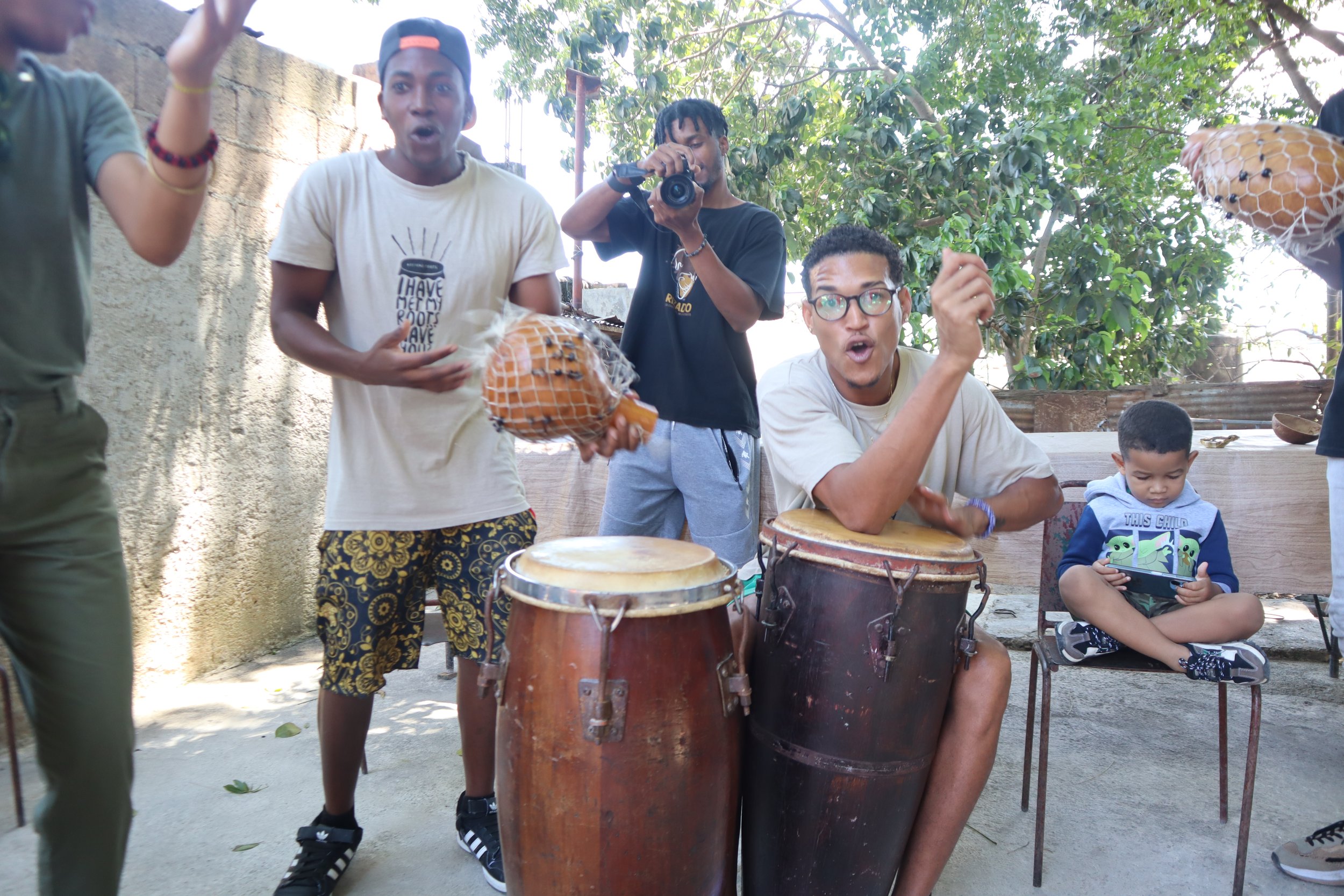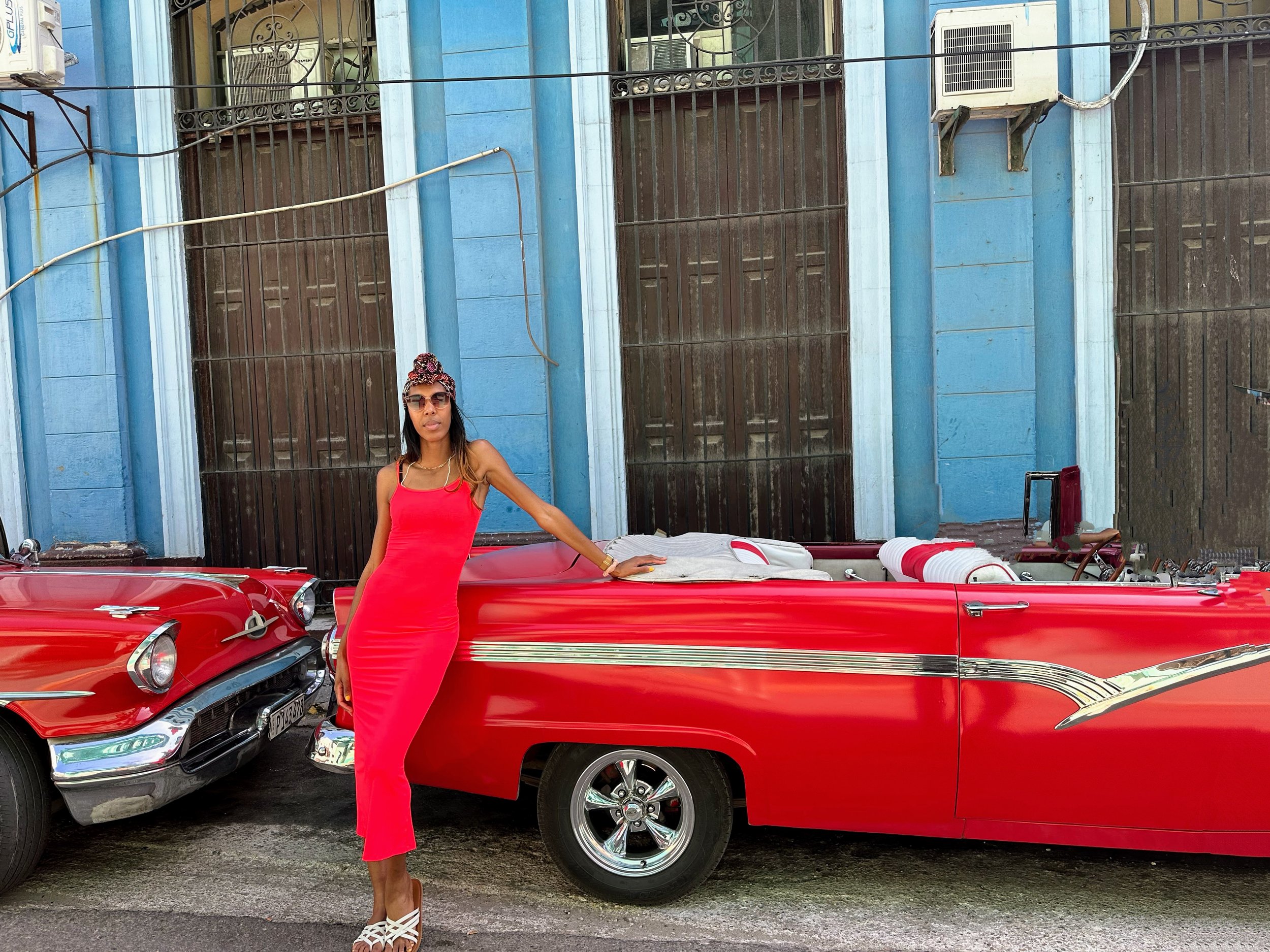Discovering the Soul of Cuba: MY Journey Through Afro-Cuban Culture in Havana
Cuba has been on my bucket list to visit since 2019 when the U.S. - Cuba relations were first nudged open by former U.S. President Barack Obama. I remember hearing the news come down from the AP News Wire in my tiny Florida newsroom where I was working as a local political journalist at the time.
I was one of the first to express interest in taking a press tour around the island, a privilege, of course, I was not granted despite being the only Black journalist (probably ever) in that newsroom. My senior editor, a typical old white guy, was the first on the plane and left the rest of us salavating at chance to visit the island that year.
Fast forward five years later and I recently found myself saying yes on a whim to a friend’s request to tag along to Havana for her upcoming birthday trip only two weeks away.
When she asked, literally two weeks before her departure, I kept thinking ‘Why not just go, finally?’. A few hours later, I took a deep breath, pulled out my phone, and booked the $250 round-trip flight from Ft. Lauderdale to Havana…. it was FINALLY happening!
First stop around the world: Havana
Dinner at La Guarida in Old Havana night one.
Embarking on my MONTHS-long ex-pat adventure, I kicked off my journey with six SOUL NOURSHING days in the heart of Cuba - Havana. As I immersed myself in the vibrant streets and rich history of this island nation, I couldn't help but be captivated by the tapestry of cultures woven into its very fabric.
To fully understand Cuba, or any Caribbean island, you must first know the Taino. The Taino People were native Caribbean islanders. Before the arrival of Spanish colonizers, the Taino people thrived in the Caribbean, including Cuba. With their advanced agricultural practices and vibrant culture, they left an indelible mark on the island. Despite their tragic encounter with European settlers, their legacy endures in the cultural heritage of Cuba.
One of the most profound eye-opening parts of my journey was experiencing the vibrant Afro-Cuban culture that permeates every corner of Havana. From the mesmerizing rhythms of drums echoing through the streets to the spiritual richness of Santería, I was quickly enthralled by the depth of traditions preserved by the descendants of African slaves.
In Havana, music isn't just a form of entertainment; it's a way of life. Rooted in African traditions brought by slaves, rumba pulsates through the city, inviting everyone to join in its infectious rhythm. Meanwhile, Santería, a syncretic religion blending African spiritual beliefs with Catholicism, provides a glimpse into the resilience and spirituality of Afro-Cuban communities.
I got a full history of Afro-Cuban religion, met a shaman, enjoyed a home-cooked Cuban lunch, and participated in performances from local artists during a tour of Guanabacoa, the island’s first African cabildo (or guild) with Beyond Roots.
Afro-Cuban musicians playing for our group at Beyond Roots cultural experience.
To me, Havana felt a lot like New Orleans— a city I know nearly like the back of my hand. Growing up in and spending many adult years living in NOLA, I am accustomed to the sounds and rhythms that vibrate throughout the city. I’ve always referred to my (almost) hometown as ‘the American Caribbean city’, visiting Havana proved to be even more true during our Afro-Cuban culinary tour. It’s hard not to notice the distinct line between staples like rice and beans, and stews made from chicken and fish— not unlike the gumbo or rice and gravy I grew up eating.
And it was a feeling of familiarity that I kept relishing in during the tour. Black Caribbean islanders, who were every shade of Black and brown you could imagine. As a Spanish-speaker, I found myself enthralled with the different dialects between Black Cubans and non-Black Cubans; again not unlike the Cajun/Creole dialects and southern slang between Black folks in the deep south.
Young girls with laid edges, teen boys flirting and older locals sitting on stoops outside our Airbnb all day felt much like the summer afternoons in South Mississippi when neighborhood kids would roam the streets to find something to do as the elders keep a watchful eye over the block.
It was Black culture, but it was also distinctively Caribbean.
An Invitation to Black Americans: Discover Cuba's Untold Stories As a Black American traveler, my journey to Cuba was not just a voyage to a distant land but a homecoming of sorts - a reconnection with a part of my heritage often overlooked. Cuba's Afro-Cuban culture resonated with me in ways I never expected, offering a glimpse into a shared history and shared struggles.
By immersing ourselves in places like Havana, we not only enrich our own lives but also contribute to bridging the gaps between cultures and fostering mutual understanding in an increasingly interconnected world.
My six days in Havana were just the beginning of my long-awaited trek across the globe. A jumping off place of sorts. It’s been a strong start to the next few months that I’ll spend in other destinations where I’ll, hopefully, find more interesting and enlightening people.
It was a little bit of a task getting there, navigating the international borders, exchanging dollars for Cuban pesos, and remembering to bring toilet paper everywhere I went, but it was a place and experience I won’t ever forget I don’t think. If you have the means, the patience, and the curiosity I would say add the island nation of Cuba to your 2024 itinerary. You might be surprised what you find there in the beauty of diversity that unites us all. ¡Viva Cuba!


